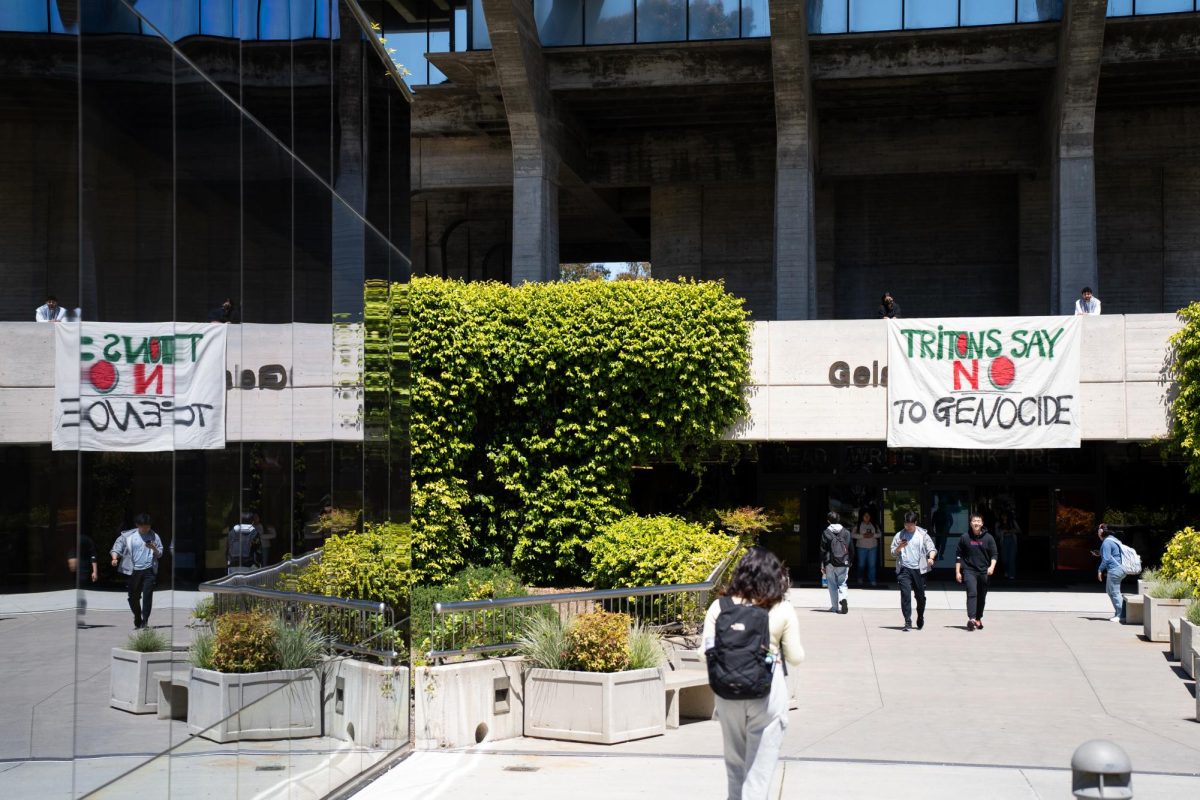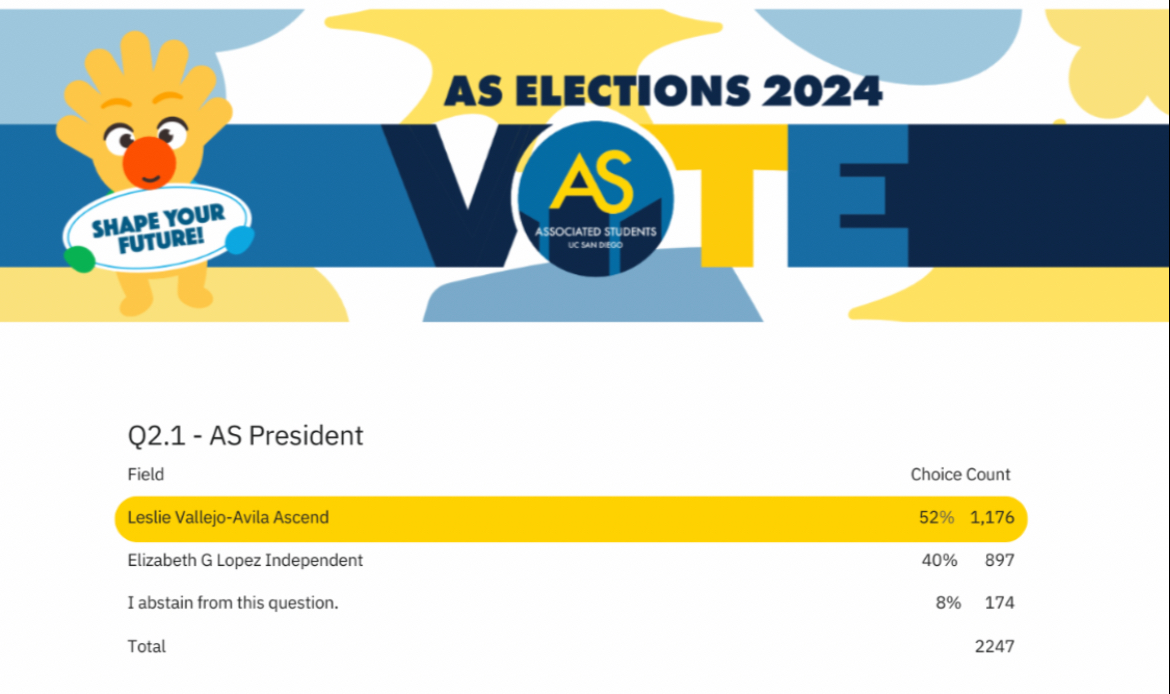The 12,000 employees represented by United Auto Workers Local 2865 — a group which includes part-time workers such as teaching assistants, graders, readers and graduate student instructors — called for the rejection of the three-year agreement and organized a meeting for Tuesday, Nov. 30 at UCLA.
“We wanted to reach out to membership statewide and let them know that there is another option besides taking inadequate contract agreement,” UC Santa Cruz Unit Chair Brian Malone said. “This is not the best we can do [because] the leadership throughout the contract campaign especially in the last few months has not seriously organized the strike. I feel like we have yet to show our strength to the UC by actually organizing our membership.”
Union members will begin voting on the contract at the nine UC campuses on Nov. 29 and will continue until Dec. 2.
The two bargaining teams tentatively agreed to increase wages by a minimum of 2 percent per year, with the possibility of increases in the 2011-12 and 2012-13 academic years, depending on whether there will be increased funding from the state.
“We are very pleased to have reached what we believe is a fair agreement, and one that recognizes both the contributions our student employees make to UC’s teaching mission and the budgetary challenges we face,” UC chief negotiator Peter Chester said in a statement.
UAW Vice President Daraka Larimore-Hall agreed, despite the minority group disagreement.
“It’s a great contract, particularly in this budget climate,” Larimore-Hall said. “It’s a strong package of guaranteed wage increases with the possibility of even more if the budget situation improves.”
But in the letter sent out on Nov. 21 to UAW members, several members stated that they believed that the 2-percent annual wage increase was inadequate because it does not match the 3-percent inflation rate for the contract term.
“The other reason is that, despite what UAW has said, we know that UC has money to give us a better contract,” Malone said. “It wouldn’t be that expensive…It would be a mistake for UAW to buy UC’s rhetoric about having no money.”
According to the letter, the UC Board of Regents received an increased total executive compensation of $11.5 million this year and spent $2 million last year on bottled water that could have been used for wages.
UAW recording secretary David Selby said members should appreciate what has already been passed.
“It’s a great contract and there is a difference of opinion on it,” Selby said. “But…the specific claims they make about more things we can gain, we’re getting things that other people aren’t getting right now. We’re actually getting a wage increase — small as it might be — other people are taking furloughs [and] that’s a massive cut and pay. The faculty took that before.”
In addition, the contract increases the total childcare reimbursement amount from $900 to $2,400 per year. The subsidy would be extended into the summer terms.
“[Childcare is a priority] because it’s a basic question of equity,” Larimore-Hall said. “We think childhood poverty is a serious issue in California and we want to make sure that the UC as an employer is part of the solution and not part of the problem. Also, many reports have shown that childcare responsibilities are a major factor in…major academic careers.”
Selby — who worked as a teaching assistant for UCSD’s political science department and Revelle College for seven years — also agreed.
“[The tentative agreement] is really wonderful for graduate students and academic student employees, especially in the increases for childcare subsidy which would make UCs more family-friendly,” Selby said. “We think that’s something that’s actually going to pay off for both UC and workers specifically. We think that it’ll really help drive recruitment in a really smart way [and] keep UC at the forefront of family-friendly policies across the nation.”
Those who disagreed said they thought the increasing childcare reimbursements increase to $600 per quarter was inadequate because it does not match the estimated cost of $1,000 per month.
“We’re the only group in the nation, probably in the world, that gets this benefit and we tripled it,” Selby. “To belittle it and say ‘that’s nothing,’ tell that to the people actually claiming the benefits.”
In the tentative agreement, the union will also receive partial fee remission for non-resident tuition that will increase along with possible tuition increases.
“For the first time in history, we have a partial tuition remission for nonresident tuition,” Larimore-Hall said. “That’s what the university system has been opposed to in the last decade of negotiation. That’s a very big victory.”
The proposed contract also includes expanding the union’s role in negotiating health care benefits, maintaining compensation for union bargaining team members and improving timeliness of job offer notifications.
“We improved our appointment notification language,” Selby said. “That’s really important for members because we don’t get a job every quarter [so now] we know when we have a job beforehand — that’s a good thing that our members are happy about.”
If the union ratifies the contract, the terms will go into effect from the day of ratification to Sept. 30, 2013. The union ratification process is expected to take several weeks. If the agreement is not approved, UAW and the UC system will have to renegotiate their terms.
“The reason we were able to win so many great things in this contract is that our members have been taking action, signing important public statements, doing delegations to chancellors [and] standing up and demanding a fair contract,” Larimore-Hall said. “And the results are really clear.”
The union filed an unfair labor practices suit in Spring Quarter 2010 to upgrade its contract. Negotiations then began at the end of June.
In June, more than 50 teaching assistants and tutors participated a grade-in (grading assignments) at the stage in Price Center.
“It was to demonstrate that our working conditions as academic employees are tied to the learning conditions of students.” Selby said. “It’s one of the other things we’re focused on is quality of education at UCs and specifically doing the best we can to keep class size down.”
In addition, more than 600 UCSD members of 6,000 members statewide added their names to a report card that graded the UC system’s performance in its core education values with regards to budget priorities.
The negotiated contract, which expired on Sept. 30, was extended to Dec. 4 to accommodate the ratification process.
According to Larimore-Hall, 2,000 of the union members attend UCSD. The average total compensation for teaching assistants working part time for nine months is about $28,500.
About 90 percent of funding for the salaries of student employees comes from general funds.
Readers can contact Regina Ip at [email protected].







